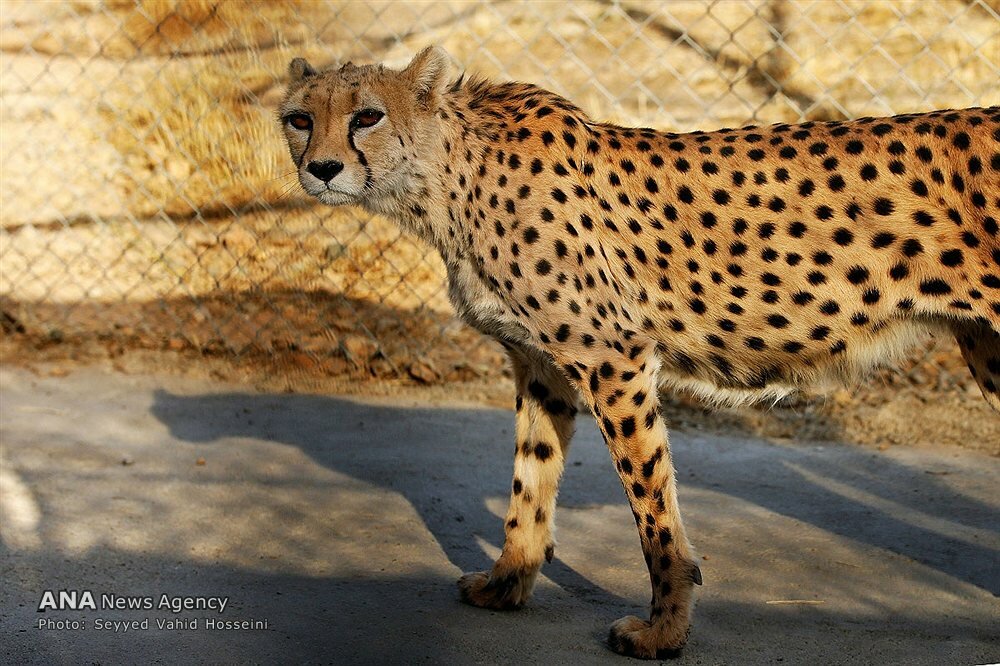‘Too soon to decide cheetah kept in captivity is pregnant or not’

TEHRAN – Female Asiatic cheetah, Delbar, kept in captivity, undergone artificial insemination at Pardisan Park in Tehran earlier this year (starting on March 21), and may be pregnant but it is still too soon to determine, Majid Kharrazian-Moqaddam, director of the wildlife conservation and management at the Department of Environment has said.
Artificial insemination is a method of treating infertility by inserting semen directly into a womb.
With her first pregnancy failed, artificial insemination became an option as possibility of natural mating of Asiatic cheetah couple Kushki and Delbar has declined in the past years, Kharrazian-Moqaddam said.
So, we introduced Kushki’s sperm into Delbar’s cervix for the purpose of achieving a pregnancy less than two months ago, and the result will be announced within next month, because deciding whether she is pregnant or not involves running a scan using anesthetics which is risky regarding her conditions by putting her in a state of high anxiety, he explained.
Although we have not decided so far whether to perform a scan or not, it is safer for the fetus to wait for the physical changes to appear on the cheetah, Kharrazian-Moqaddam further highlighted.
Currently, it is not possible to claim that Delbar is carrying cubs in her uterus, and in fact, we are striving not to put her under stress, he noted, IRNA reported on Saturday.
He further expressed hope that the female cheetah is pregnant, concluding that the couple being kept in captivity are totally healthy.
In 2015, the female Asiatic cheetah once became pregnant naturally but sadly lost her cub.
Last year (March 2018-March 2019) Delbar was physically prepared for mating with Kushki (the male Asiatic cheetah in captivity), however, possibly due to Kushki’s old age, the two didn’t breed.
Natural mating has been already tried for Asiatic cheetahs kept in captivity, which sadly failed. Now, artificial insemination is considered to be the major option for fertilize the female Asiatic cheetah, nonetheless, the chance of pregnancy and survival of the cubs is extremely low. However, any achievement of using artificial insemination to breed them would raise hopes for Asiatic cheetahs.
The world's fastest mammal, capable of reaching speeds of 120 kilometers per hour, once stalked habitats from the eastern reaches of India to the Atlantic coast of Senegal, once their numbers have stabilized in parts of southern Africa, but they have practically disappeared from northern Africa and Asia.
The subspecies "Acinonyx jubatus venaticus", commonly known as the Asiatic cheetah, is critically endangered, according to the International Union for Conservation of Nature, with fewer than 50 believed to remain in Iran.
Roads fragmenting cheetahs’ habitats are the main threats for the species, while guard dogs and stray dogs, drought spells, decreasing population of the prey species to support the cheetahs, and habitat loss are also other factors endangering the sparse population of the cheetahs in the country.
FB/MQ/MG
